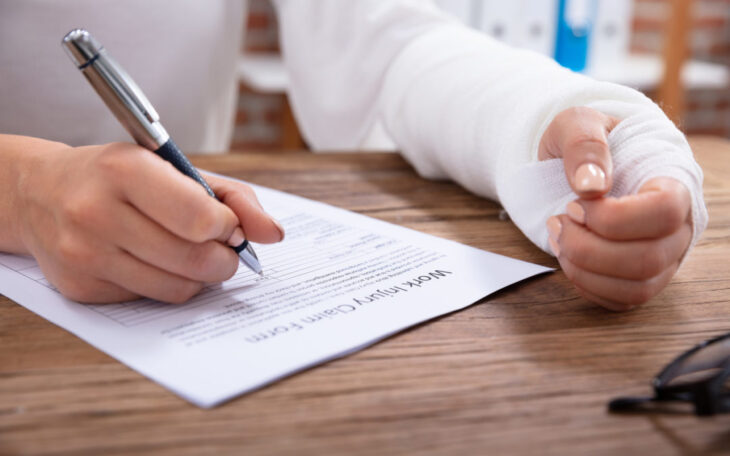Personal injury cases take time to reach the concluding stage, and certain circumstances highlight whether such cases reach the trial or not. Many factors will come into the picture while determining whether your case will reach that stage or not.
In common cases, people think about out-of-court settlements, but a series of factors determine the same. For example, 90% of personal injury cases tend to settle. So let’s discuss the overall factors that will determine the position of your case and whether it will undergo a trial or not.

Source: bankruptcylawidahofalls.com
Contents
Parties To A Personal Injury Claim
If you are unaware of the terms, you should know the side you belong to for the same. For example, if hurt has been caused to you and you want to file a case against the person who has caused such injuries and damages to you, then you are the ‘plaintiff.’
However, if you are on the other side, that is, you have caused the injury and damage, and a case shall be registered against your act, you will be defending the case as a ‘defendant.’
In simple words, the plaintiff is the person seeking justice, and the defendant is the one who is defending his rights.
Settlement Stage
Many reasons will draw the personal injury case for a settlement outside the legal boundaries. Let’s discuss them one by one.

Source: Mechanicweb.com
-
Case Strongness
Whenever an individual insurer or a company defending the case believes that the case is in your favor, there are high chances that they will reach out to you for an off-court settlement. In this case, the defendant knows that a court case will lead them to heavy losses.
-
Fewer Expenses
The defendants know what they are doing. Whenever they go for an off-court settlement, there are chances for you to get higher compensation. Such settlements cost them less and save a lot on expert hiring expenses, followed by the soaring high cost of the court processes.
-
Chances Of Better Success
The defendant party looks deep into the case and still finds it difficult to find contentions that can turn the case in their favor. Hence, settlements without taking the legal way are better for them.

Source: pinterest.com
Factors Leading The Claim To Reach The Trial Stage
Many attorneys and their legal service websites can help you decide whether you should go for the trial stage or opt for an on-table settlement. One of them is foryourrights.com. It can help you gather everything that you need to know about your injury case proceedings.
No matter which options you choose, your decisions should be based on the option that has the maximum benefit for you against personal injuries. The deciding factors on whether a personal injury claim will reach the trial stage or not are as follows:
- The extent to which you have undergone injuries if you are the plaintiff. If you are defending your case, you should know the same and decide the amount to offer for settlement.
- The potential amount for medical care and expenses of the injuries occurred because of the accident.
- The income of the person who has undergone injuries in such a case and their spending capacity for proper treatment and case, followed by the legal expenses of proceeding with the case.
- The damages that have occurred against the property, earning capacity, and employment.
- The age of the person to whom the damage has been caused and their family’s financial condition.
- The degree of hurt that has been caused.
Trial Stage
Many issues in the case might give the plaintiff or defendant confidence that they have better chances of winning the legal case. The factors behind such judgments are as follows:

Source: Pinesspinejoint.com
-
Success Rate
If either or both the parties to a personal injury claim are sure of their clean conduct and good faith, the case may reach the trial stage. Also, if none of the parties or even one of them refuses to opt for a settlement, then this is the only option that they have in their hands. Also, the issues of both the parties and supportive arguments have a major role in ensuring the success rate at the claim’s trial stage.
-
Non-Settlement
Whenever there is a settlement in a personal injury claim, it may create a precedent. Also, it can be harmful if people think it is easy to get away in such cases. Hence, it can be one of the reasons that your case reaches the trial stage. Moreover, it will create a better effect as the potential wrongdoers will have that impression that may refrain them from doing such tasks intentionally.
-
Biasedness Or More Accountability Of Injuries
Also, if there is slight evidence of biasedness, the plaintiff will surely seek the courts to intervene in such cases. It is the right and the discretion of the plaintiff to hold the defendant liable for his wrong acts in a public manner which shall only be possible if you file a case against them. Trial stages will make them accountable for their actions and have a perspective effect on similar issues that will likely arise.
-
Demand For High Amount In Settlements
In a settlement for personal injury cases, there are high chances of clashes between the parties as they may or may not be able to agree to the terms. The terms can be related to the amount payable for settlement, negotiation, injuries having a direct relation with the accident, charges, and extent of the claim. So, such tiffs often end up at the door of the court.
In the end, whatever is decided by the court is binding on both parties. Therefore, they will have to perform the duty bestowed upon them by the court in the given time frame.

Source: businessadministrationinformation.com
Conclusion
So, if you are a party to a personal injury claim, there are 2 ways of going about it – settlement and trial. First, sit down with your team of professionals and decode the possibilities in both cases. Then, in the end, go with the option that you feel is more beneficial.
